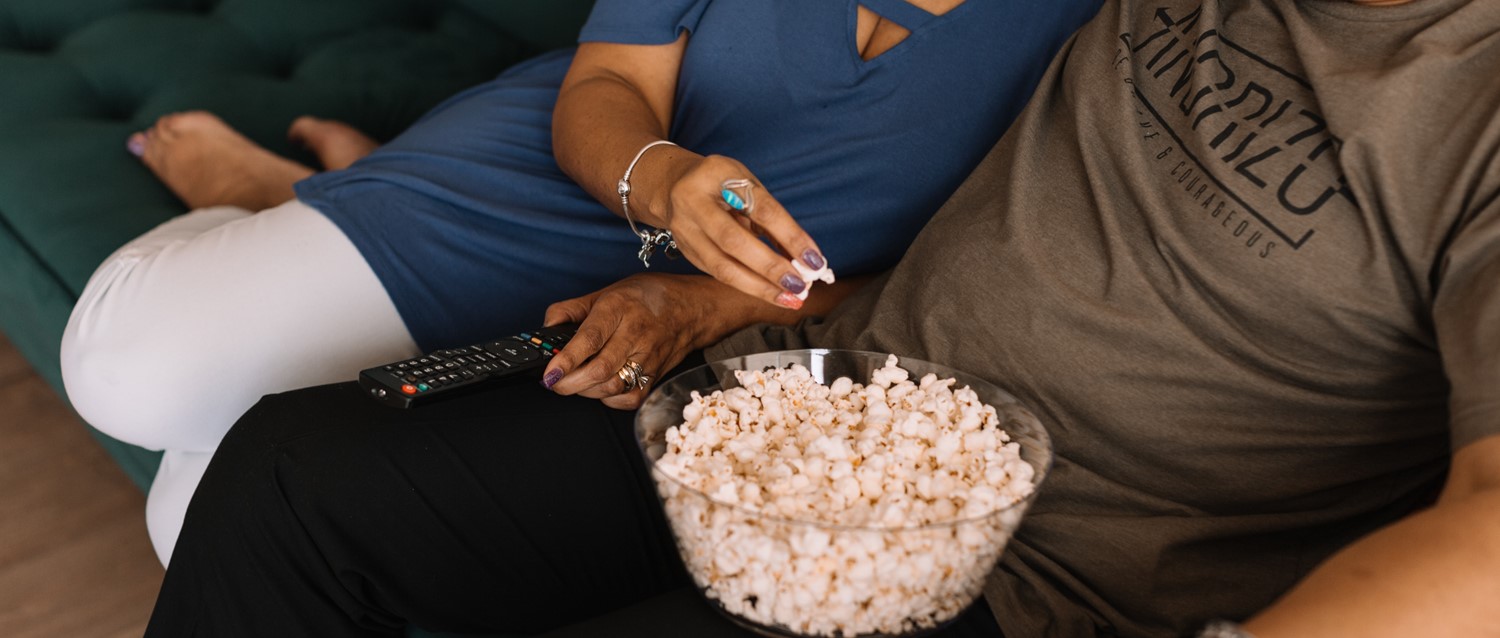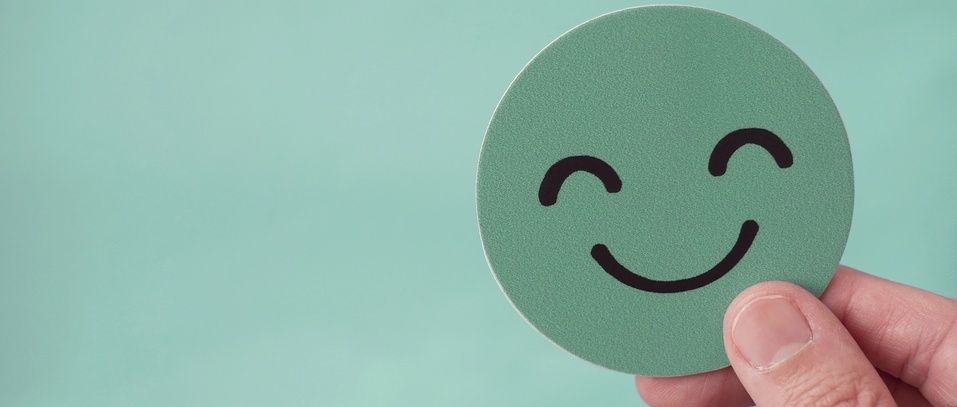
Why do we find it comforting to re-watch our favourite movies?
Peer reviewed by Dr Sarah Jarvis MBE, FRCGPLast updated by Emily Jane BashforthLast updated 27 Nov 2021
Meets Patient’s editorial guidelines
- DownloadDownload
- Share
- Language
- Discussion
Most of us have a TV show we've watched hundreds of times but still love, or a comfort movie we'll never tire of. Maybe it's a cheesy romance story, a comedy or even a Christmas classic we dig out as soon as the clocks go back. But what's the psychology behind our favourite films? Why do we like watching the same things over and over, even if we know what happens in the end?
In this article:
Why do we often choose to re-watch movies we are familiar with?
Rebecca Lockwood is a therapist and teacher of psychology. She says watching movies can provide an escape from the real world, which is comforting for some people. Especially if you are really into a movie, you can get fully immersed into that world. When you have problems in our own life, or worries that are troubling you, a comforting, familiar movie can help tune those out.
There's also something comforting about watching a film you know won't disappoint. Particularly if you struggle with anxiety or have trouble relaxing, you might become stressed or on edge when watching something suspenseful. Already knowing what the outcome is going to be allows you to be prepared. Not everyone likes a surprise or a plot twist. Sometimes, it's nice to know that the romantic kiss in the rain is coming up, or the bad guy is about to get his comeuppance.
Researchers Cristel Russell and Sidney Levy have actually named the calming feeling of re-watching movies as 'experiential control', which provides 'emotional regulation'. To put it simply, this means, because you know the ending already, you also know how it's going to make you feel. Re-watching something is a way of controlling your emotions and helping you feel safe, something that can be beneficial if you're having a stressful time.
And it isn't just adults who experience joy and comfort when watching their favourite movies. In 2017, Netflix shared that one mysterious subscriber had watched The Bee Movie an astonishing 357 times over the year. Their identity was revealed as a British mother and her 10-month-old son, whom she said would 'throw tantrums' whenever the animation wasn't on. So, not only do children learn from watching things repeatedly, it also helps them form connections and develop a better understanding of the world around them.
What do comfort movies do to our brains?
Back to contentsOne reason why you might enjoy watching the same thing over and over again and quoting every line is because repetition breeds affection. Known as the 'mere exposure effect' by scientists, this explains that familiar things are easier to process and we have a tendency to develop preferences for things if we've already been exposed to them. This is also known as the familiarity principle.
"When you watch movies and become immersed in the film, you start lowering what's called the critical faculty, or critical factor, in the brain," Lockwood adds.
"This allows suggestions into the subconscious mind and creates a perception that the things you are watching are true. You then immerse yourself into them. This is why, when you are not into something you are watching, you will question if it's even possible for it to happen, and the critical factor will discard and discredit it."
Films can also create nostalgia if you have special memories attached to certain titles. Perhaps you watched them as a child and re-watching them as an adult helps you reminisce about times gone by. A recent study discovered that nostalgia can manifest itself physically as warmth and comfort.
It's beginning to look a lot like Christmas
In addition, your favourite films boost your happiness levels, something research has shown Christmas films help with.
Maybe it's Elf, Love Actually or Home Alone, but Christmas films actually boost dopamine levels. Triggering this hormone makes you feel happier and lighter.
This does make sense, since Christmas films tend to be very magical and joyful, providing a real warm and cosy feeling when we curl up to watch them.
This neurological shift also reduces stress levels and anxiety as they take you out of your everyday life, signalling to your senses which then measure if what you're watching is pleasing or not.
Additionally, watching Christmas films with someone else can strengthen your relationship with them, both with a love interest and a family member, helping you feel closer.
Continue reading below
What other aspects of mental health might comfort movies aid with?
Back to contentsThere are other aspects of mental health that can benefit from watching movies you love.
Lockwood says comforting movies with happy endings and uplifting storylines can improve your mindset and give you a more optimistic outlook on life.
"On the other hand, if you are re-watching a movie that is more serious or explores darker topics, this can have negative consequences. As you immerse yourself into those worlds, it programs your mind to think more about these topics and can influence your mindset to a more despondent one."
Might the need to re-watch comfort movies constantly be linked to another mental health issue?
Back to contentsWhile a feel-good musical or a cheesy rom com can make you feel inspired or hopeful, there's an unhealthy side to immersing yourself constantly in a fictional world.
"Films can sometimes cause you to compare your own life to what you see on-screen, much like with social media. This can become unhealthy and leave you feeling like something in your life is lacking, or you aren't fulfilled enough because your life hasn't panned out like your favourite character's," says Lockwood.
She adds that it can also cause a problem if there is a certain character you relate to and see yourself in. There's a risk of you adopting their characteristics, which can be limiting since that character is not a real person.
"However, if you see yourself in a character in a show or film, this can also be really positive and affirming. Representation is important, and seeing a character who looks like you or faces similar obstacles can make you feel seen and validated. For example, seeing diversity on-screen in sexuality, gender, race, religion and body size can make you feel less alone and help you become more accepting of yourself."
Patient picks for Mental wellbeing

Mental health
What is 'good mental health'?
We all want to feel well, both mentally and physically. But what feeling well means - especially in terms of mental health - varies for each of us. We all need different things to feel our best.
by Lynn Stephen

Mental health
Why our brains are hooked on bad news
In a world where every global and local event is amplified by social media and 24-hour news cycles, switching off feels nearly impossible. Sensationalised headlines dominate our feeds, often leaving positive stories overlooked. This constant stream of information can become overwhelming - and even damaging - to our mental health. But why are we wired to focus more on bad news than good?
by Victoria Raw
Article history
The information on this page is peer reviewed by qualified clinicians.
27 Nov 2021 | Latest version
27 Nov 2021 | Originally published

Ask, share, connect.
Browse discussions, ask questions, and share experiences across hundreds of health topics.

Feeling unwell?
Assess your symptoms online for free
Sign up to the Patient newsletter
Your weekly dose of clear, trustworthy health advice - written to help you feel informed, confident and in control.
By subscribing you accept our Privacy Policy. You can unsubscribe at any time. We never sell your data.